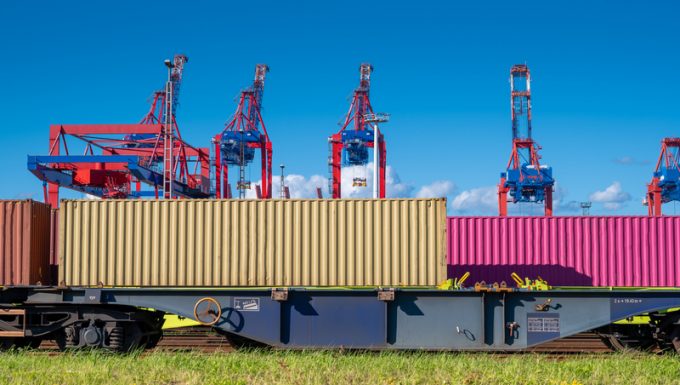Air cargo: yields and friction up, but demand slowing, as trade 'rebalances'
Air cargo growth will likely slow this year, but those players that can adapt and ...

Action from port authorities, combined with “bold regulatory moves”, will be necessary to enable a modal shift from road to rail across Europe, a new report from McKinsey claims.
Bold Moves to Boost Rail Freight urges European governments to consider rail investment in the context of the “public good”, and highlights that profitability was rarely the first consideration when building, for example, a road between two small villages.
“However, for more than 30 years, rail infrastructure operators have prioritised profitable lines over unprofitable ...
Semiconductors could compensate for air freight's lost ecommerce traffic
'It’s healthy competition' Maersk tells forwarders bidding for same business
Transpacific sees first major MSC blanks as rates fall and volumes falter
'Weakened' Maersk paying a heavy price for its lack of fleet growth
US shippers slam USTR port fee plan – 'an apocalypse for trade'
Opposition builds for final hearing on US plan to tax Chinese box ship calls
Despite sourcing shifts, 'don't write-off China', says CMA CGM CCO

Comment on this article
gunther ginckels
January 24, 2022 at 4:20 pmI will be the last to question McKinsey’s factual data…. but they do mis some context. Cargo does not need dayslots while passengers are not moving during nighttimes. Also cargo benefits from “overnight” slots where trains are loaded during day time and discharged the next daytime. With the privatisation of European Rail and the forced (rightfully) split between the rail-infrastructure companies and the train-operating companies we have seen private operators emerging. What these private operators do is only start a rail-link service when they have sufficient volumes in the specific corridor, thereby leaving the “leftovers” with the “National” state-owned railway operators. Latter activity is by definition inefficient and thus either lossgiving or excessively expensive to the users. Antwerp has the potential to increase its rail throughput due to a dense Port & National rail network. It allows the consolidation of part-volumes and through its volumes sufficient traffic to offer frequent raillinks to several european destinations. Next issue is the “what goes up – must come down” principle. One of the OBOR handicaps is that China / Europe is for 80% a on-way traffic and in terms of slotcosts the price for a train with full containers is the same as the price for a train with empty containers. Than there is the Hamburg story – also named “The Hamburger Abkommen” What it means is that the german state and Hamburg have found ways to subsidise rail transport products allowing very competitive tariffs. It explains the success. And France ? Well France is France – They SAY “yes we will privatise and allow private operators to use the railway network” They DO “we will make it so difficult for private operators that they say thanks but no thanks”. That leaves only the Renault’s, Peugot’s, Citroen’s and Total’s to run “private” trains over the French railwaynetwork.
Chris Gosling
January 25, 2022 at 7:12 pmThis looks like poor information regarding the Port of Felixstowe – local site Felixstowe Live will be publishing some correct info tomorrow!